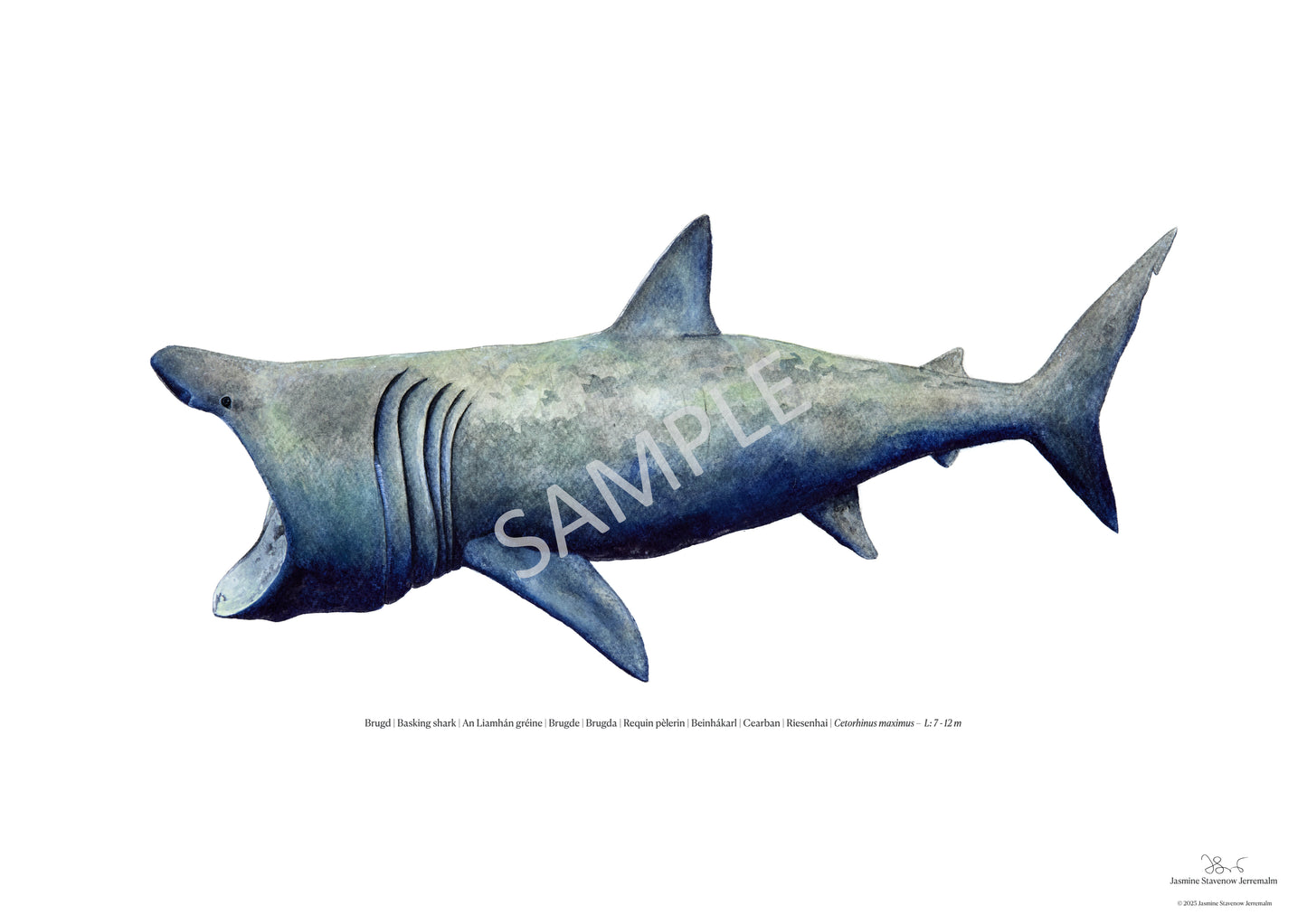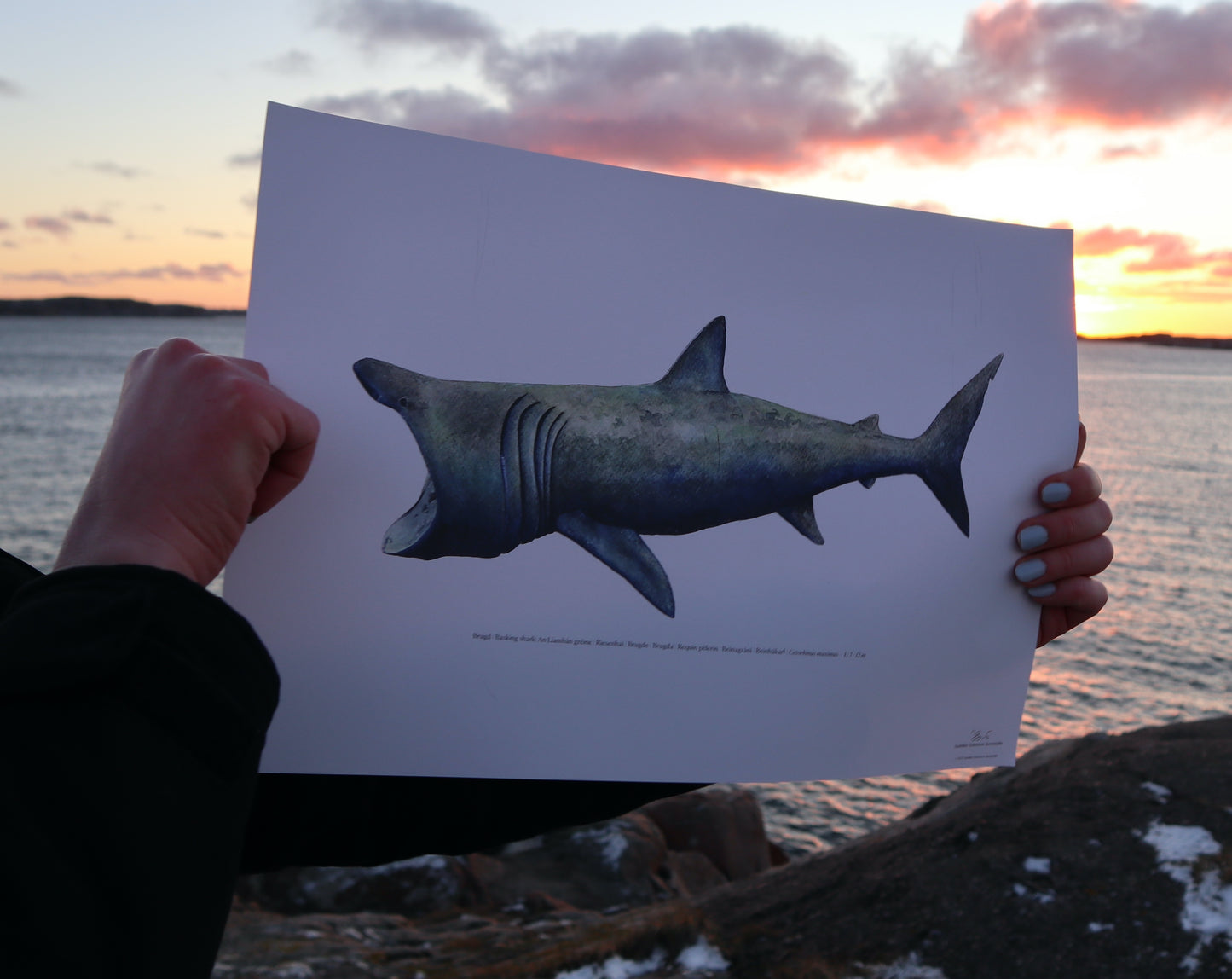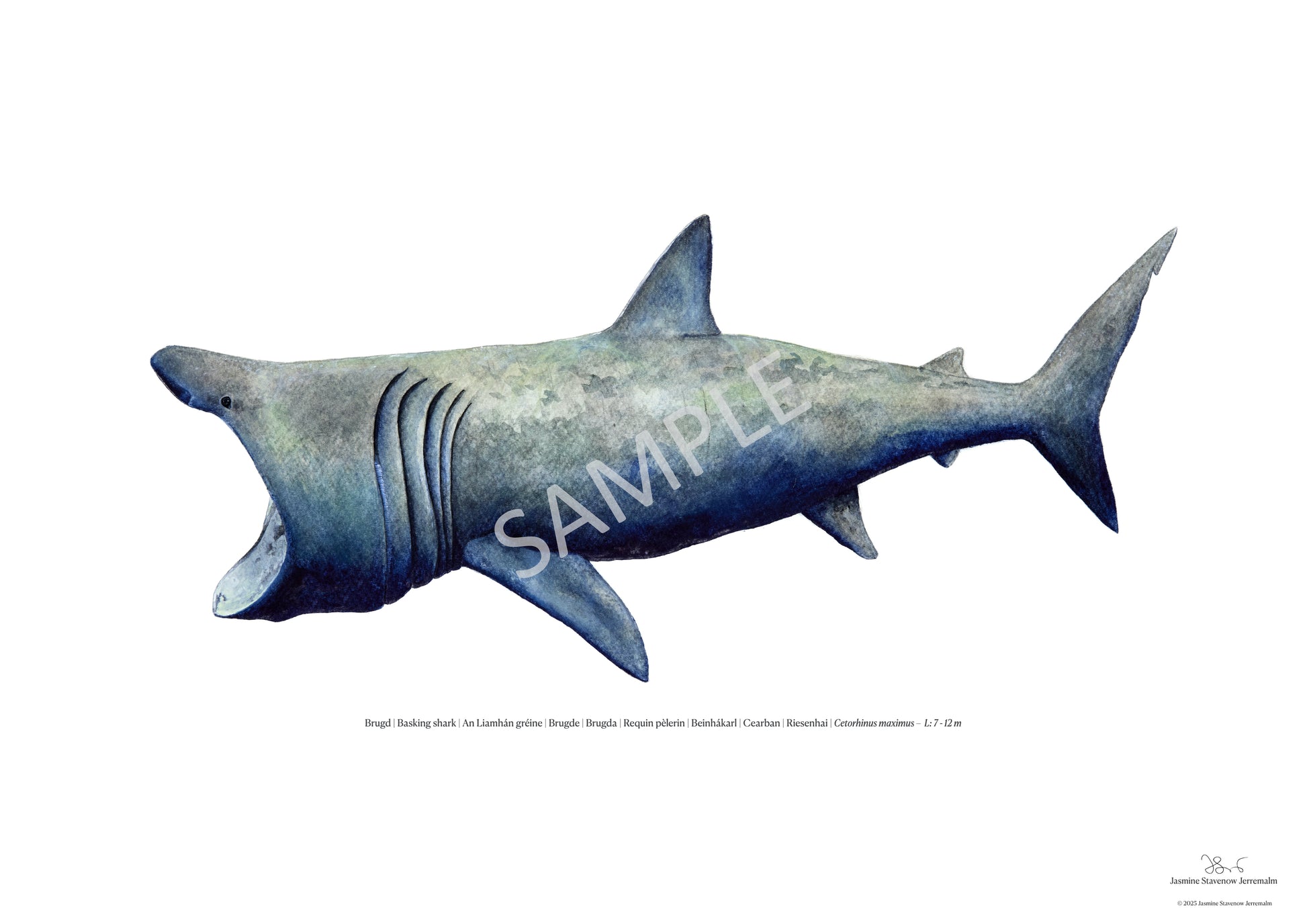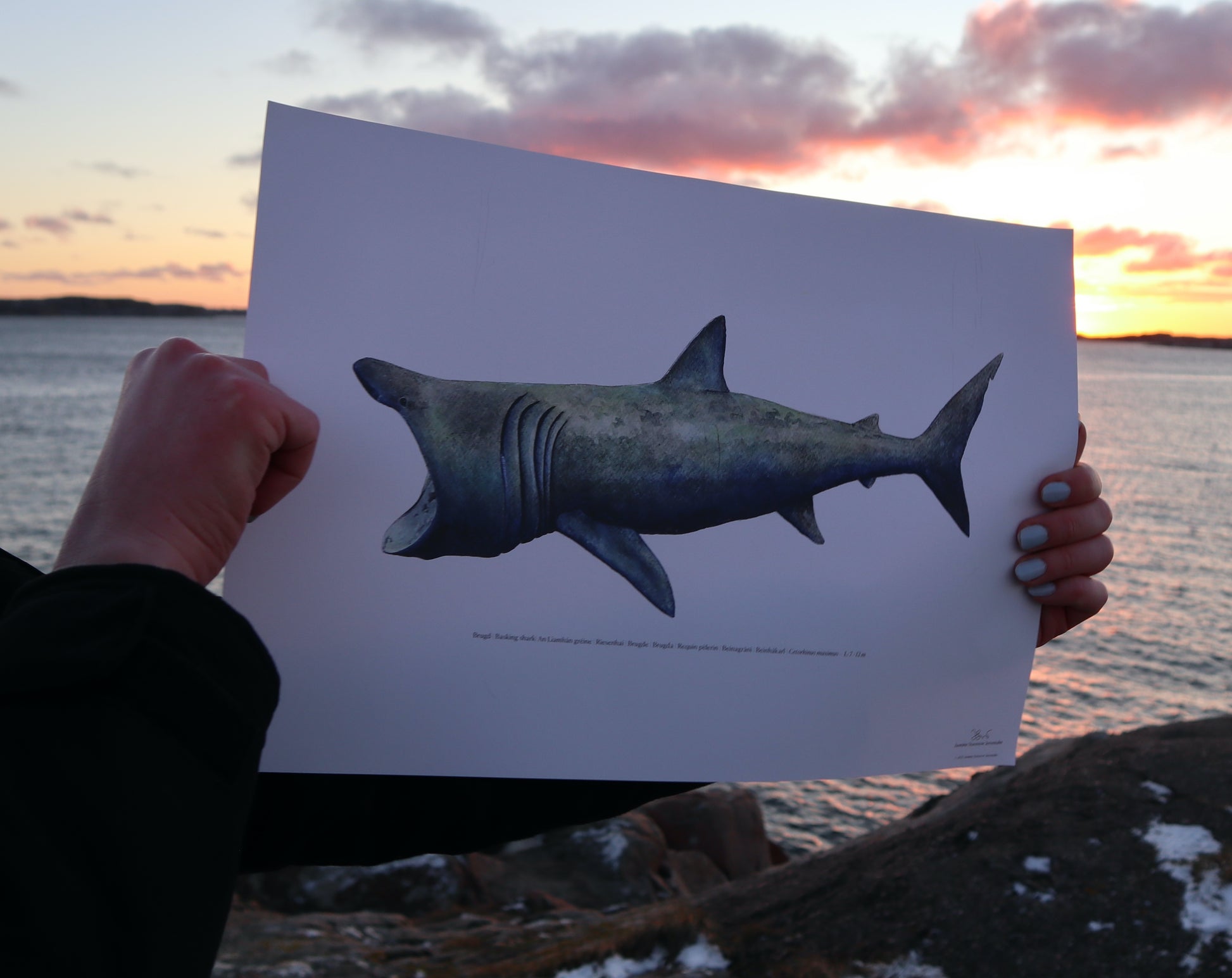Whales et al. ART
Brugd | Basking shark
Brugd | Basking shark
Couldn't load pickup availability
Brugd | Basking shark- Poster print
Water colour illustration - Global species collection
Size: A3 paper
High quality silk paper (200gsm)
Below the water colour illustration, there is a single text line with knowledge about the species. You'll find the common species names in multiple languages, including its latin species name (see below) and also information about the size of the species.
Swedish: Brugd
English: Basking shark
Gaelige: An Liamhán gréine
Norwegian and Danish: Brugde
Faroese: Brugda
French: Requin pèlerin
Icelandic: Beinhákarl
Scots Gaelic: Cearban
German: Riesenhai
Latin species name: Cetorhinus maximus
About Basking sharks
The Basking Shark, the second-largest fish in the world after the whale shark, is a gentle giant of the seas. These filter feeders are known for their massive mouths, which they swim with wide open to strain plankton from the water. Found in temperate and boreal oceans worldwide, basking sharks often migrate great distances and are frequently seen near the surface, appearing to "bask" in the sun as they feed, a behavior that inspired their name. Despite their size, reaching up to 12 meters (39 feet), they are harmless to humans. Basking sharks have distinctive features, such as gill slits that almost encircle their heads. Though they appear slow-moving, they can achieve sudden bursts of speed. Their reproduction is poorly understood but fascinating, as they are ovoviviparous, with embryos developing inside eggs within the mother before live birth. Rare and slow to reproduce, these sharks are classified as Endangered by the IUCN.
The Global Species Collection aims to highlight species that are familiar to many, as they are widely distributed and in many places numerous. In several geographical regions, they have played, and still play, important roles in human cultures, and they have names in many languages. They are some of the most loved and charismatic species, still they hold many secrets left for science to unveil.
Share




